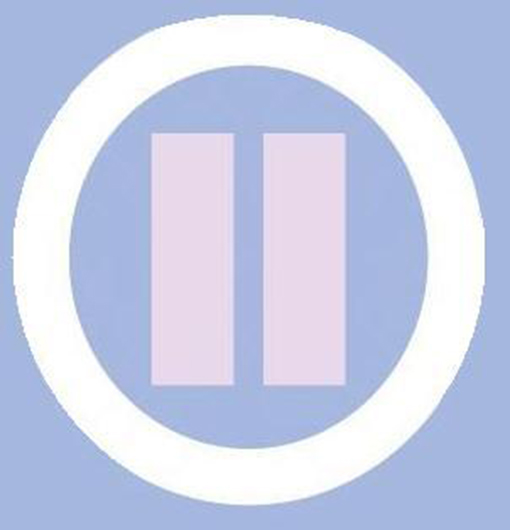March is Colorectal Cancer Awareness month. For most people it’s recommend you have your first screening colonoscopy at age 50. Some people should have their first screening earlier. New data indicates African-Americans have their first screening colonoscopy at age 45. Regardless of race or ethnicity, if you have a family history of colorectal cancer, however, it’s recommended you have your first screening ten years earlier than the age at which your family member was diagnosed. For example, if your mother was diagnosed at age 50, you should be screened by age 40.
Some people delay getting this potentially life saving screening because they are afraid, or don’t know what to expect. Below you’ll find information from Dr. Mark Rosenberg that helps to alleviate some of those concerns.
Be well,
~Dr. Donna
If you’re age 50 or over*, it’s likely your doctor has recommended that you have a screening colonoscopy, an internal look at the colon to check for conditions that may lead to cancer. When I recommend my patients for colonoscopy, they don’t exactly jump for joy, and many of them are fearful of the process. They’re afraid it’s going to be painful, embarrassing, or that it will have complications.
However, after I explain to them exactly what the procedure is, how quickly it is over with, and how beneficial it is to their health, most of my patients are ready to get their colonoscopy without concern. Allow me to share with you what I tell my own patients about colonoscopy so that, you too, will feel more at ease about this relatively simple procedure.
What Is The Purpose of A Colonoscopy?
It helps my patients to understand why they should have a screening colonoscopy if I explain to them what it is and what it does. Simply put, a colonoscopy screens for possible colon cancer and other diseases of the bowel or colon.
A colonoscopy is, as the word itself states, a “scope” of the colon. After specific preparation the day before, which consists of consuming a special drink, the colon is completely emptied (see Preparation below). The day of the procedure, a light sedation is given and a small diameter scope is entered into the rectum through the anus that slowly advances forward until it reaches the cecum, a structure which tells the doctor the end of the colon has been reached.
Once at the cecum, the doctor slowly pulls the scope backwards and carefully examines the walls of the colon as it moves, making note of any abnormalities along the way. These areas may be biopsied at the time of the exam.
Sometimes polyps, a fleshy overgrowth of tissue, are found on colonoscopy. They are usually removed during the procedure and sent off to pathology. Most polyps found during colonoscopy are benign, or noncancerous. The scoping is continued until it is back at the anus. The entire procedure is very short from start to finish. After a brief recovery period, you are able to return home and eat normally. Because of the sedation, however, you will need someone to come with you to drive you home.
Who Should Be Screened?
Generally, if you are age 50* or over, you should have your first screening colonoscopy to determine the health of your colon. If you have any history of colon cancer in your immediate family, you are at higher risk for developing colon cancer and screening is imperative.
Also, if you have any symptoms such as pain, bleeding, diarrhea, chronic constipation, passing a lot of mucus or other tissue in your stools, a colonoscopy may be necessary to determine other diseases like Crohn’s, irritable bowel syndrome, celiac sprue, or diverticular disease.
Is A Colonoscopy Painful?
No, generally not. In fact, most patients who have a colonoscopy are unaware that the procedure was even done. Light sedation, or sometimes even general anesthesia, is given. You fall asleep and are surprised when you’re awakened to find that the procedure is already over!
What’s The Preparation for Colonoscopy Like?
Well, as I tell my patients, the preparation for a colonoscopy is probably the least pleasant part of the procedure, as it necessitates emptying your bowel frequently over a period of hours and you will only be able to consume clear fluids, some juices, and gelatin during this time. No foods are eaten. You must stay near a bathroom to do the preparation, so I advise my patients to stay home.
Generally, you will drink a preparation called MiraLAX, a polyethylene glycol solution that is mixed with Gatorade G2 along with 2 bisacodyl (a laxative) tablets over a period of about 6 hours the day before the colonoscopy is to be done. However, if you have liver, kidney or heart disease, your doctor likely will recommend a different preparation solution. You will start having bowel movements throughout this time, becoming more and more watery, until your entire bowel is empty. Part of the solution will be taken the morning of the exam about 4 hours before, so be sure to allow for drive time.
Any discomfort from the colonoscopy preparation is more likely to come from irritated anal tissues. This is easily remedied, however, by applying A and D ointment to the area and using moistened wipes after bowel emptying. Some people may experience a little nausea after drinking the solution but this will resolve itself shortly.
Although colonoscopy is likely not on anyone’s list of fun things to do, it is a necessary and very beneficial screening tool to catch colon cancer in an early stage, when the success rate for treating it is much, much higher.
In fact, I would rate having a colonoscopy as being less scary and having less discomfort than most dental work, which most of us do all the time without a second thought! Getting screened for colonoscopy only needs to occur maybe once every 5-10 years if you have no special health risks, which necessitate more frequent screening. With the prep and the exam itself, colonoscopy takes about 1-1/2 days out of your life that can help save many more days of your life!
Mark Rosenberg, M.D.
Institute For Healthy Aging
Article Source: http://EzineArticles.com/?expert=Mark_Rosenberg,_M.D.
http://EzineArticles.com/?Colonoscopy-Recommended?-What-To-Expect&id=5859084
*Note from Donna L. Hamilton, MD-Chief Wellness Officer Manifest Excellence, LLC: New data indicates African-Americans should have their first screening colonoscopy at age 45. Regardless of race or ethnicity, if you have a family history of colon cancer ask your doctor what age you should begin screening. Depending on the history it could be as early as in your 20’s.
About Manifest Excellence, LLC
Manifest Excellence, LLC supports people with optimizing personal wellness by addressing the five key areas that impact health. They combine over 20 years traditional medical experience with a comprehensive & holistic wellness philosophy to provide innovative and effective wellness strategies. They enthusiastically teach a comprehensive approach to health and wellness that addresses mental, emotional, social, spiritual and physical wellbeing.
- 10 Quick, Easy Holiday Self-Care Tips - December 15, 2017
- Health Benefits of Kindness and Compassion - June 3, 2017
- Why Self-Care is Good for Your Health - May 10, 2017





